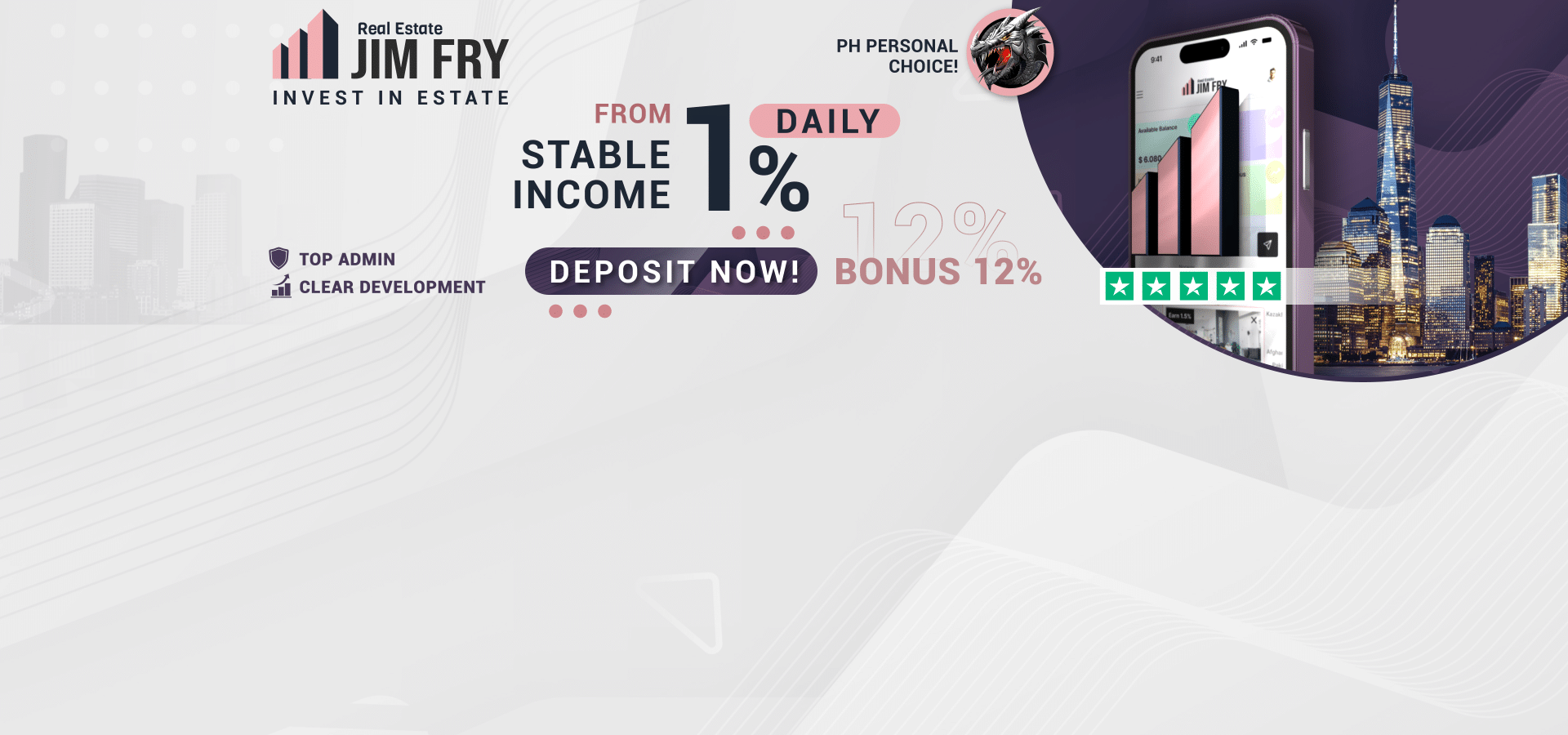Smart contract - what is it in simple words?

Have you ever thought about how great it would be if we did not need intermediaries in the form of banks with payments, government bodies would not be bureaucracy, and to enter into an inheritance or buy a house could be in a matter of minutes? All these delights of life will soon become available to us through smart contracts. In this article, we propose to discuss what these contracts are like, how they work and whether or not we really need them.
What are smart contracts and why are they needed?
A smart contract is an algorithm created in code that allows two parties to cooperate without involving a third party in the person of an intermediary. In simpler terms, a smart contract is a digital semblance of a physical contract - at least the meaning and functions of these contracts are similar. Why did such a contract get the prefix "smart"? Because it works completely without human participation - independent, transparent and reliable.

Thanks to a smart contract, users can exchange a variety of assets - real estate, money, securities, etc. Both parties can be completely sure of the fulfillment of the conditions by the other participant, because without this the deal simply will not take place. Smart contracts themselves are intermediaries in transactions between which participants can not be trusted. Only unlike a bank or a notary, such a contract will not take money from the user, it can not be bribed or biased.
Schematically, the whole essence of contracts can be portrayed as follows: there is a certain condition embedded in the system, without the onset of which this or that action will not be fulfilled. For example, if Mister Y he will not be sent the goods from Mr. X. This is an elementary explanation, but contracts can be much more complicated, they can have many participants, conditions and such triggers that trigger a certain action. That is, in fact, to implement such a contract can be anywhere - it's just a matter of writing a detailed algorithm, taking into account all the nuances.
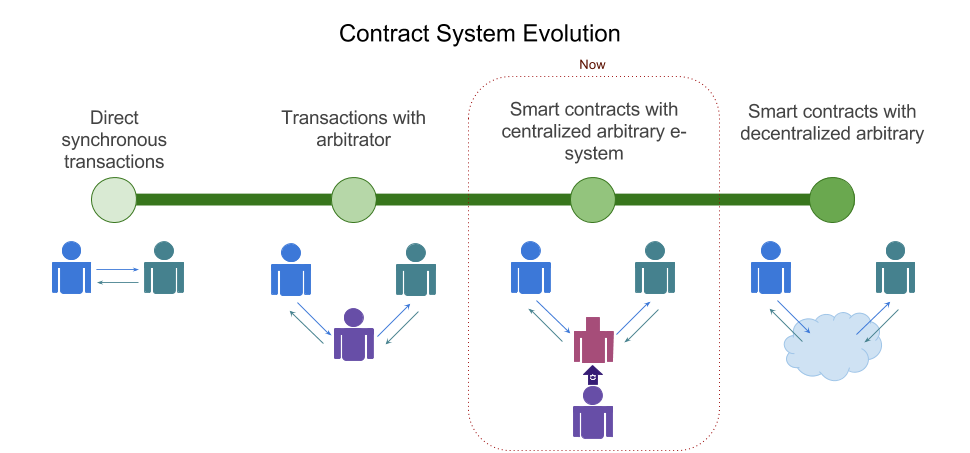
If we compare smart contracts with "paper" contracts, the latter simply completely lose their relevance against the backdrop of innovative technology. It is necessary to pay tribute to the smart contract and its advantages:
- Smart contracts will significantly reduce the cost of intermediaries, commission and other costs.
- Participants in the transaction receive security - the contract operates according to the specified algorithm and, if someone does not fulfill their obligations, the other party will not incur losses.
- Participants in the transaction remain confidential.
- A smart contract has open source code and anyone can check it.
A bit of history: how and when did the Smart contract arise?
Surprisingly, the very idea of a smart contract was invented long before the invention of the crypto currency. In the distant 1994 year, a certain Nick Szabo (there is a version that this is Satoshi Nakamoto himself, read more about this here) first invented the concept of the work of the contract, although in practice to implement the idea and could not. The idea was as follows: a computer protocol based on mathematical principles allows for certain transactions and controls their implementation. The main idea of Sabo was the removal of mediators from these relationships.
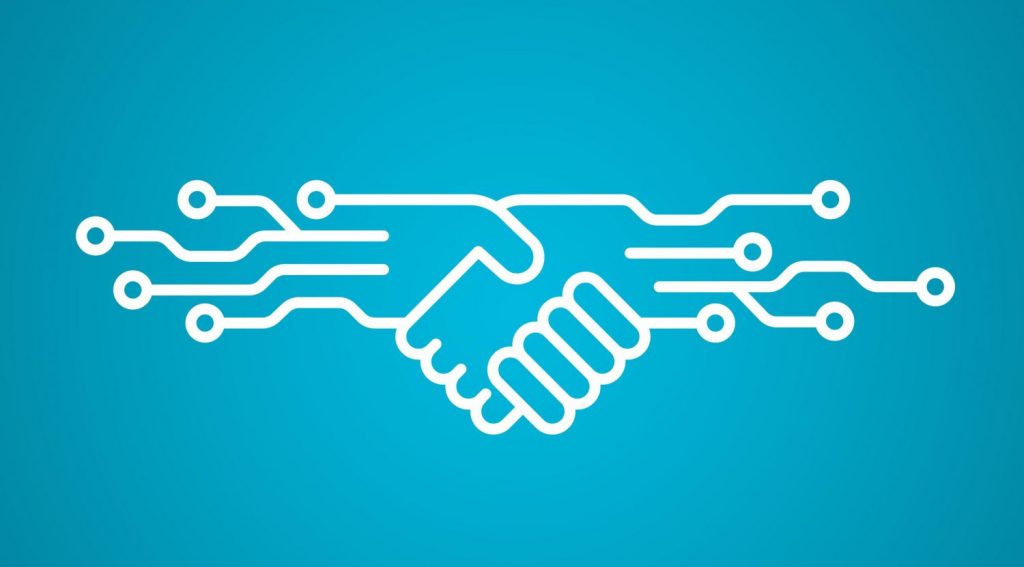
Of course, in those distant times, even the technical foundations for the work of a smart contract were not and could not be. Over time, only in 2009-th year some kind of a smart contract was realized in practice in Bitcoin.
Smart contract and blocking
If we talk about smart contracts that were introduced into bitcoin, then these are very limited algorithms with minimal functionality. Apparently, Satoshi Nakamoto was careful not to actively implement smart contracts, as he feared for the security of the entire system. Nevertheless, it was thanks to Nakamoto that their implementation became possible at all - without the technology of blocking, the existence of some smart contracts there would have the most vague prospects.
Without a distributed registry, which is Blockchain, the introduction of smart contracts would be impossible, and that is why the environment is crypto-currency and smart contracts are inextricably linked. Nevertheless, today contracts work outside this environment - they were taken up by business representatives who are trying to organize the work of a smart contract outside of traditional blockhouses.

Ethereum and smart contracts
The first project, in which the smart contract was fully implemented, was the well-known Efirium. It was in 2015 that Vitalik Buterin, who considered the architecture of Bitcoin imperfect, launched the platform that initiated the real revolution. What is so not like Buterin Bitcoin? On the contrary, he was a big fan of the main crypto currency, but he considered its possibilities somewhat limited, because it is impossible to use the cue ball as a basic protocol - in the existing form the system is not designed for this. The Ethereum protocol is created differently and makes it possible to use the system for the implementation of various business projects and applications.
Vitalik Buterin himself says that smart contracts will put an end to the intermediaries. According to him, banks, lawyers, insurers will soon disappear - the role of these institutions will be assumed by the contracts. I must say that this transformation has already begun and contracts are being actively implemented in various fields.
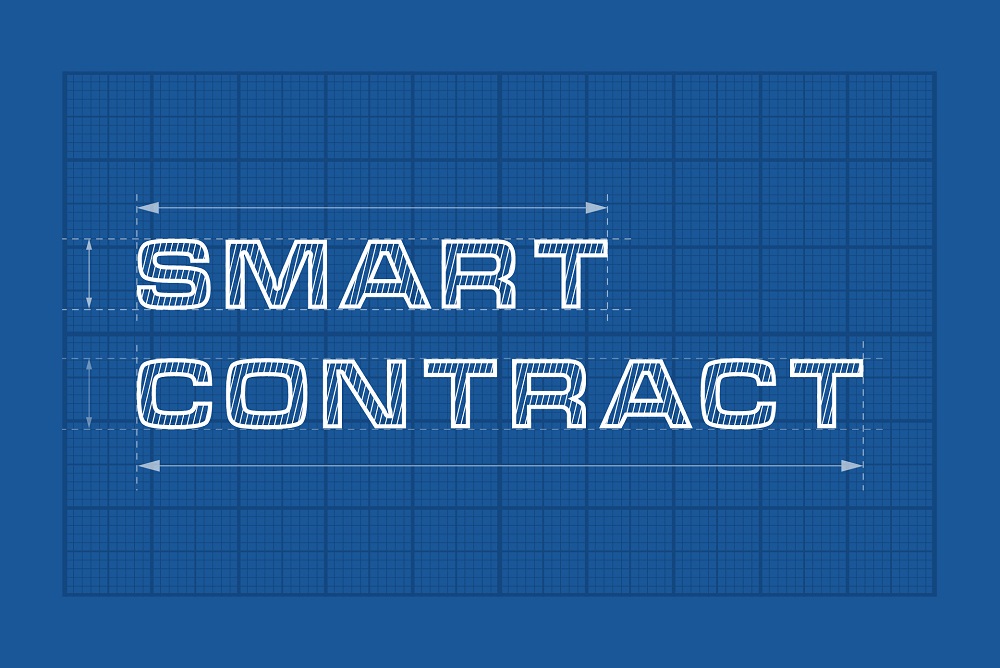
Smart contract: examples of use in real life
If you delve deeper into the essence of smart contracts, it becomes clear that humanity has long needed such an innovation. After all, this technology allows many transactions to make it safer and more profitable. Do not believe me? We shall prove this by simple examples.
- In the online shops, there is one significant disadvantage - lack of trust. On the one hand, the store is not sure that if he sends the goods by cash on delivery, the buyer will pick it up and pay. If this does not happen, the store will suffer losses, because it will pay the cost of sending back and forth. The buyer, however, is not sure that if he immediately sends money, he will be sent goods. If you introduce smart contracts into this procedure, then both sides automatically have trust, because the contract will be the mediator who will ensure that all conditions are met. The buyer will simply send the cost of the goods to a special address in the block, where the money will remain until the transaction occurs.

- Smart contracts will replace banks - if funds can be safely sent directly to the addressee, why include in this procedure some intermediary and pay him a commission?
- Rent or buy housing thanks to smart contracts can be in minutes - do not need an abundance of documents and intermediaries, and the transaction will be fair and safe.
- Thanks to smart contracts, you can fundamentally change the scope of insurance - this, of course, awaits us in the distant future, since to implement such an idea, it is necessary to debug the entire system. Nevertheless, it is expected that the introduction of such contracts will not only make insurance as transparent as possible, the system will be able to determine who is to blame for the accident, in what conditions the cars were kept and what the real amount of compensation should be.
- The introduction of smart contracts in the field of audit and accounting in general opens the prospect of extermination of "black" accounting, and at the state level, smart contracts will allow for fair elections and eliminate bureaucracy in various instances.
Do we need the development of smart contracts?
Absolutely all technologies have the opposite side. The invention of the car simplified the movement, but polluted the environment, nuclear energy gave great opportunities for mankind, but became the cause of radioactive contamination, even flights into space and those - destroy the ozone ball. Smart contracts also have disadvantages, despite the fact that humanity obviously needs such technology.
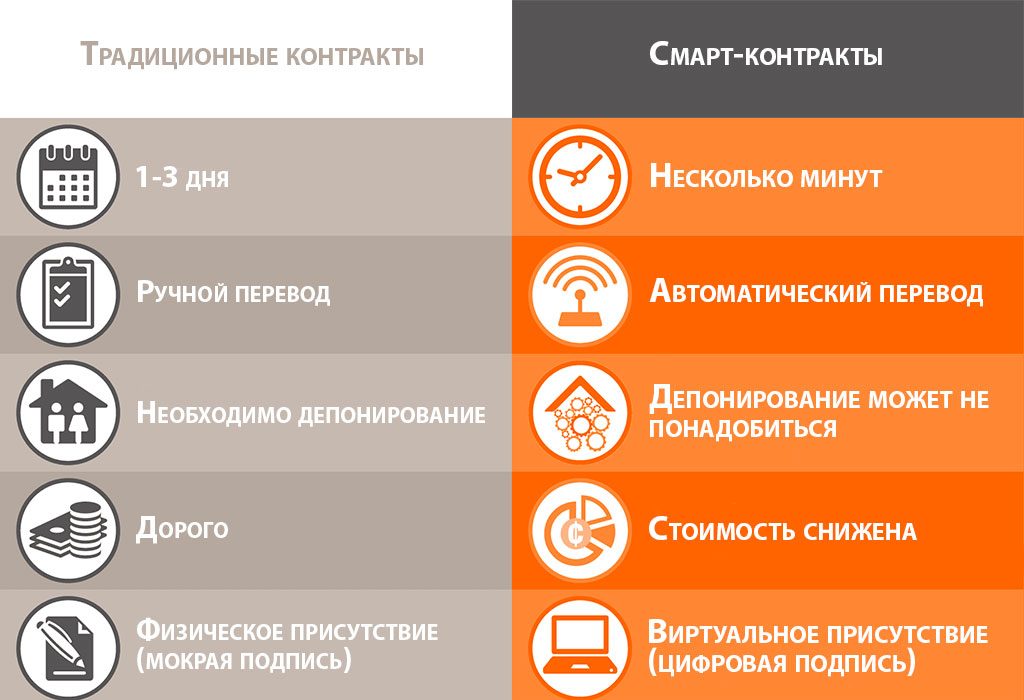
Unfortunately, the situation with the introduction of smart contracts into life looks paradoxical. On the one hand, we really need them, because almost every step is accompanied by some intermediaries. We can not do without them, as we can not trust each other, but intermediaries in the person of banks or lawyers can not always be trusted. We have a vicious circle, it is simply impossible to get out of it without a kind of revolution. This revolution will be smart contracts, but the introduction of them must be very cautious and smooth. Imagine that tomorrow humanity will introduce them into their lives and then billions of people will remain unemployed. We will not need all these intermediaries who occupy a huge number of jobs and in the labor market the need for them will be zero. Where will all these people go and what will they do after such a smart revolution?
Unequivocally, smart contracts are needed by society, and they will be introduced. But it is very important to approach this process correctly and pay great attention to safety. In such systems there should be no holes and errors that will allow maneuvers for hackers, otherwise the consequences will be deplorable. Despite the shortcomings, smart contracts are considered one of the most important inventions related to the blockbuster. Microsoft and Acronis, Lufthansa, domestic Sberbank and even UNICEF - all these respected companies are already working with smart contracts, what else can speak better about the prospects of these clever algorithms?
10 December, 2017